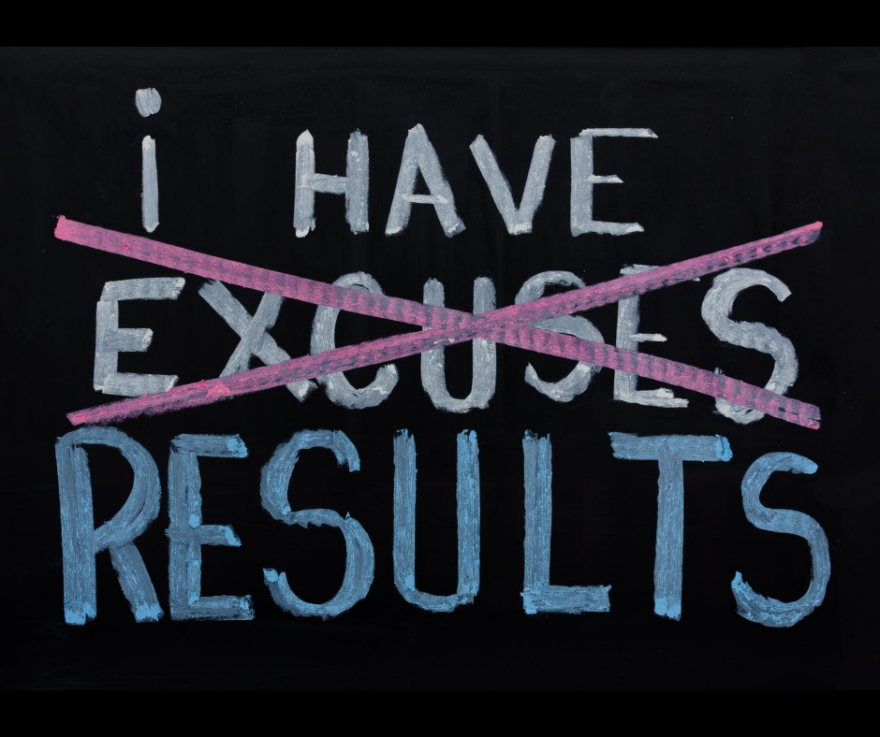BLOG_2020_08_06 Oh the Stories We Tell Ourselves
Oh, the Stories We Tell Ourselves!
6 AUGUST 2020

Every day, Melanie, a solopreneur, begins her day by telling herself her favorite story: “My potential customers do not understand the value I offer despite my existing clients providing excellent testimonials. Yet I know my competitors are getting new business all the time, even in this tough economy. It’s not fair”.
Her competitor, Alissa, has her own favorite story: “My customers value my services, even though hundreds of competitors offer similar services, because I recognize I need to understand my clients’ needs and provide more and more value to set myself apart from my competition. I know I help my customers get through these tough times."
Melanie plays the part of the victim while Alissa plays the victor.
Every day, we tell ourselves enough of these negative kinds of stories like Melanie's to fill a library: Why doesn’t he like me? Why did they laugh at my question? Why is everyone is being so difficult? How am I’m such a failure?
And on, and on, and on.
We live our lives as if the stories are true. We act and react, often in pain, from our often misunderstanding of someone’s words or actions, or our assumptions about why they are saying or doing what they are doing. And then we wonder how we should be different based on those emotions and interpretations. We are dis-empowering ourselves.
We are the ones creating the damage.
These stories, and the emotions that come from the stories, are usually the source of the pain and/or discomfort we feel in our relationships, or about ourselves. We want to blame the other person, but in reality, it’s usually our thinking actually causing the discomfort, says Byron Katie, author of the best-selling book Loving What Is.
To experience more freedom in our lives, we need to do to ease the pain of our stories by learning how to get beyond our stories, to get under our beliefs to what’s really living there.
“The result of investigation is often a deeper appreciation of the people in our lives and a realization that it was not their words or actions that really harmed us, but our uninvestigated thoughts about their words or actions,” Katie says.
In her book, Katie outlines “The Work”, a simple path of inquiry into these horror stories we tell ourselves that revolves around four questions.
1. Is it true?
2. Can you absolutely know it’s true?
3. How do you react when you think that thought?
4. Who would you be without the thought?
Doing the Investigative Work
First, state your belief about someone and ask yourself if it is true and whether you can know absolutely, without a doubt, that it is true. For example, let’s take Melanie’s belief that her potential customers do not appreciate the value she offers.
Is it true her potential customers do not understand her value? Have the potential clients ever specifically stated they do not understand the value? Do her existing clients feels she offers value? Do their testimonials reflect the value she has provided them? Does she really offer the value needed in these tough times?
The next question for Melanie is: How does she act and react when she thinks these thoughts? Does she find herself angry and resentful of her potential clients and her competitors? Does she go out of her way to avoid networking and marketing? Does she respond defensively to any sort of comment? Does her body tense up or her stomach ache when she interacts with her potential clients thinking they won’t buy her services? Does she enjoy any of her time working with her clients? Talk about a lack of peace and harmony! She might as well go get a job if she can find one with that attitude.
But what if she didn’t have this story anymore? Who would she be?
Perhaps Melissa would be more content and enthusiastic about networking and marketing. Perhaps she would be more interested in finding out what her potential clients wanted and needed and more intent on contributing more in these tough times. Perhaps she would outgrow her competitors. Certainly, she’s likely to be calmer and more peaceful.
The Turnaround
The final step in this investigation is for Melanie to turn around the statements she’s been making. Does she express criticism in other areas of her life in ways that are harsh and hard to hear? Does she try to control her spouse, her children, and/or her business associates? Is she critical and demanding of herself? Our “stories” often point to our own traits we project onto others so as to disclaim them.
It’s important to note that with inquiries like this, there is no right answer. The goal is not perfection, but truth.
“Who would you be without your story?” Katie says. “You never know until you inquire. There is no story that is you or that leads to you. Every story leads away from you.”
Think of one story you’ve been telling yourself that isn’t true?
Who would you be without that story?
Can your reframe it or let it go altogether
to make your life better – or go after your dream?
